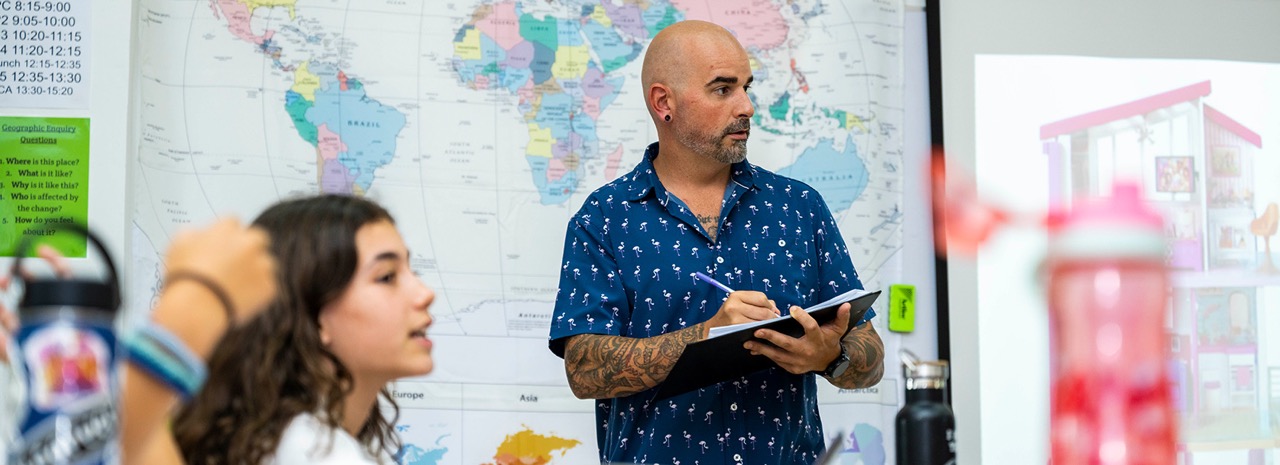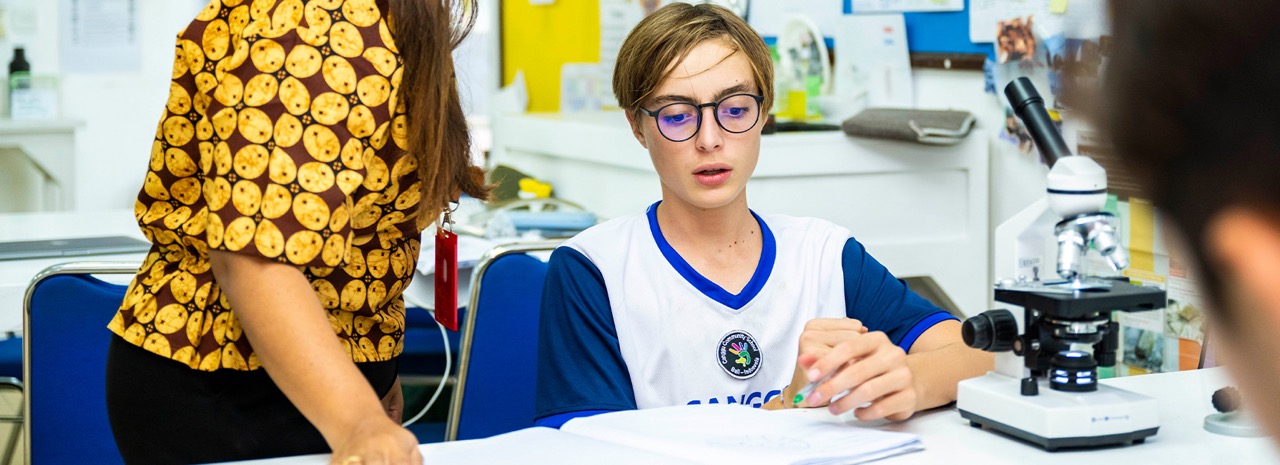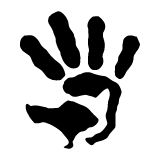Close



CCS offers an Empowered Education and Learning Approach. Learning is our most important value and is guided by our Teaching and Learning Policy.
Learning at CCS is based on inquiry, student-led, facilitated by excellent teachers, and based on world-class curriculum. CCS curriculum in grounded in international best practices and the IBDP but adapted to fit our unique context in Bali. Most importantly, we believe students learn best when they are empowered, confident, and part of a community.
The purpose of this policy is to make explicit the school’s beliefs about the characteristics of high-quality learning and the role of students, teachers, and parents. Foundational to this policy is the belief that quality learning is student-led and individualized.
The educator’s role is to facilitate the learning process by implementing effective student-centred teaching practices at all times. Furthermore, learning occurs in a dynamic community in which students value what they are learning and seek to make a difference. This policy supports all stakeholders in order to provide high-quality learning experiences, resulting in high levels of individual achievement.
Both formative and summative assessments are used by teachers throughout the year to ascertain levels at which students are achieving. The information gained by teachers from these is used to plan future learning activities and goals for students. Student attainment is also reported to parents. Teachers will provide feedback to students for all tasks and assignments that are presented for marking, against criteria that has been explained in advance.
Formative assessment will include:
Summative assessment will generally take the form of tests or tasks that are completed towards the end of a unit, or as part of an extended task that meets coursework requirements of individual subjects. These are marked against levels of attainment and age related expectations as provided by the UK National Curriculum.
As well as the on-going assessments, in Term 1 Year 7 and 9 students take part in International Schools’ Assessments (ISA) which have been devised by the Australian Council of Educational Research (ACER). These assessments in Mathematics and Literacy give us a snapshot of each student’s abilities in these areas, as well as a comparison for CCS in relation to other international schools around the world. Year 9 students also take the ISA for Science in Term 2. The results of these assessments are shared with parents.
Both oral and written reports are provided to parents of CCS students. Parent/Student/Teacher Conferences are held at the end of Term 1, and Student-Led Conferences take place early in Term 4. Interim progress reports are sent home at the end of Terms 1 and 3, while full written reports are sent home at the conclusion of Terms 2 and 4. Parents are also invited to make an appointment at any time throughout the year if they wish to discuss their child’s attainment and progress.

